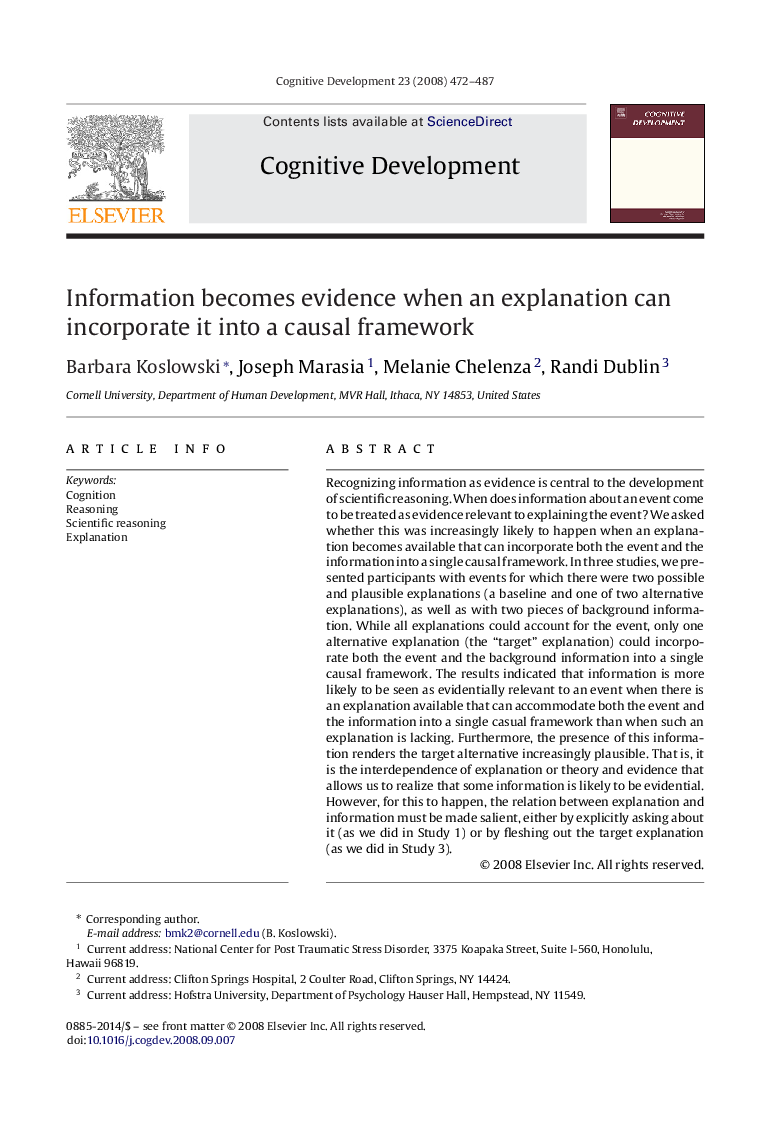| Article ID | Journal | Published Year | Pages | File Type |
|---|---|---|---|---|
| 916800 | Cognitive Development | 2008 | 16 Pages |
Recognizing information as evidence is central to the development of scientific reasoning. When does information about an event come to be treated as evidence relevant to explaining the event? We asked whether this was increasingly likely to happen when an explanation becomes available that can incorporate both the event and the information into a single causal framework. In three studies, we presented participants with events for which there were two possible and plausible explanations (a baseline and one of two alternative explanations), as well as with two pieces of background information. While all explanations could account for the event, only one alternative explanation (the “target” explanation) could incorporate both the event and the background information into a single causal framework. The results indicated that information is more likely to be seen as evidentially relevant to an event when there is an explanation available that can accommodate both the event and the information into a single casual framework than when such an explanation is lacking. Furthermore, the presence of this information renders the target alternative increasingly plausible. That is, it is the interdependence of explanation or theory and evidence that allows us to realize that some information is likely to be evidential. However, for this to happen, the relation between explanation and information must be made salient, either by explicitly asking about it (as we did in Study 1) or by fleshing out the target explanation (as we did in Study 3).
